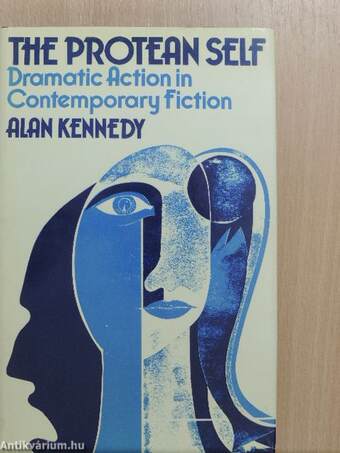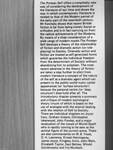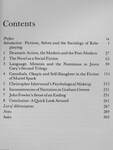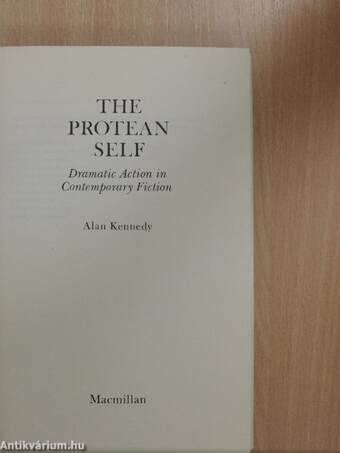1.116.650
kiadvánnyal nyújtjuk Magyarország legnagyobb antikvár könyv-kínálatát
The Protean Self
Dramatic Action in Contemporary Fiction
| Kiadó: | The Macmillian Press Ltd. |
|---|---|
| Kiadás helye: | London |
| Kiadás éve: | |
| Kötés típusa: | Vászon |
| Oldalszám: | 304 oldal |
| Sorozatcím: | |
| Kötetszám: | |
| Nyelv: | Angol |
| Méret: | 22 cm x 14 cm |
| ISBN: | 333-16603-5 |
naponta értesítjük a beérkező friss
kiadványokról
naponta értesítjük a beérkező friss
kiadványokról
Fülszöveg
The Protean Self offers a completely new
way of considering the development of
the literature of our time and shows the
way in which contemporary literature is
related to that of the Modern period of
the early part of the twentieth century.
Mr Kennedy shows that recent British
fiction is far from being merely Social or
orthodox and is in fact carrying on from
the radical achievements of the Moderns.
By means of a close consideration of a
wide range of modern novels The Protean
Self develops a theory of the relationship
of fiction and dramatic action (or role-
playing) to Society. Dramatic action and
fiction are treated as self-generated forms
which guarantee the individual freedom
from the determinism of Society without
abandoning him to solipsism. The most
recent advances in the theory of fiction
are taken a step further to elicit from
modern literature a concept of the nature
of the self as a dramatic agent which can
present to the public world many varied... Tovább
Fülszöveg
The Protean Self offers a completely new
way of considering the development of
the literature of our time and shows the
way in which contemporary literature is
related to that of the Modern period of
the early part of the twentieth century.
Mr Kennedy shows that recent British
fiction is far from being merely Social or
orthodox and is in fact carrying on from
the radical achievements of the Moderns.
By means of a close consideration of a
wide range of modern novels The Protean
Self develops a theory of the relationship
of fiction and dramatic action (or role-
playing) to Society. Dramatic action and
fiction are treated as self-generated forms
which guarantee the individual freedom
from the determinism of Society without
abandoning him to solipsism. The most
recent advances in the theory of fiction
are taken a step further to elicit from
modern literature a concept of the nature
of the self as a dramatic agent which can
present to the public world many varied
appearances (or 'surface structures')
because the personal centre (or 'deep
structure') does hold after all. The
introductory chapter presents a summary
and critique of modern sociological
theory (much of which is based on the
use of analogies with the drama) dealing
with the relation of Self to Society.
There are individual chapters on Joyce
Cary, Graham Greene, Christopher
Isherwood, John Fowles, and a major
revaluation of the novels of Muriel Spark
who is rapidly coming to be seen as the
central figure of the current scene. There
are also commentaries on W. B. Yeats,
D. H. Lawrence, Ernest Hemingway,
James Joyce, Kingsley Amis, John Wain,
Elizabeth Taylor, Saul Bellow, Witold
Gombrowicz and Iris Murdoch. Vissza
Témakörök
- Idegennyelv > Idegennyelvű könyvek > Angol > Irodalomtörténet
- Irodalomtörténet > Világirodalom > Európai irodalom > Angol
- Irodalomtörténet > Irodalomtudomány > Tanulmány, tanulmánykötet
- Irodalomtörténet > Irodalomtudomány > Korszakok > 20. századi
- Irodalomtörténet > Irodalomelmélet > Irodalomszociológia
















